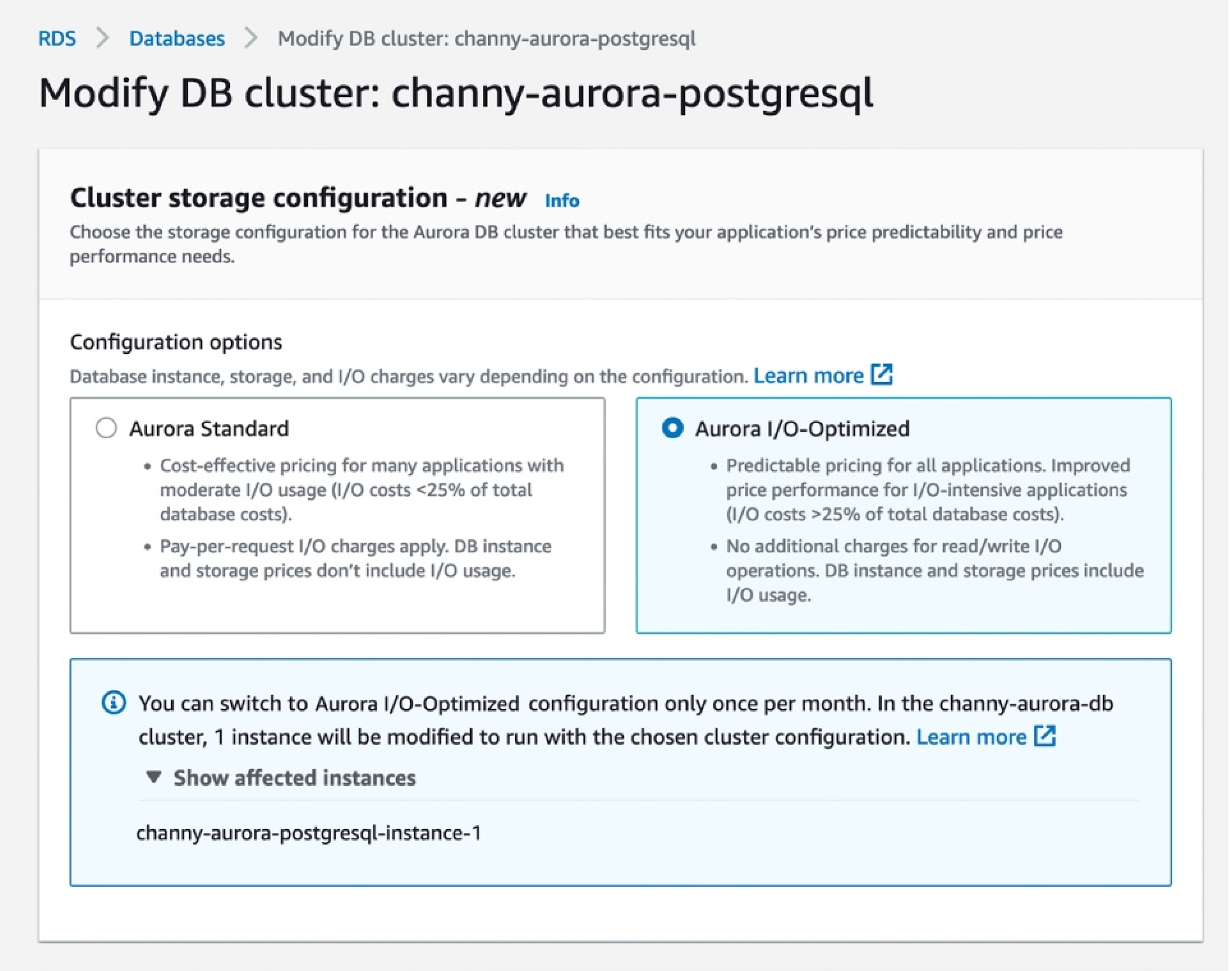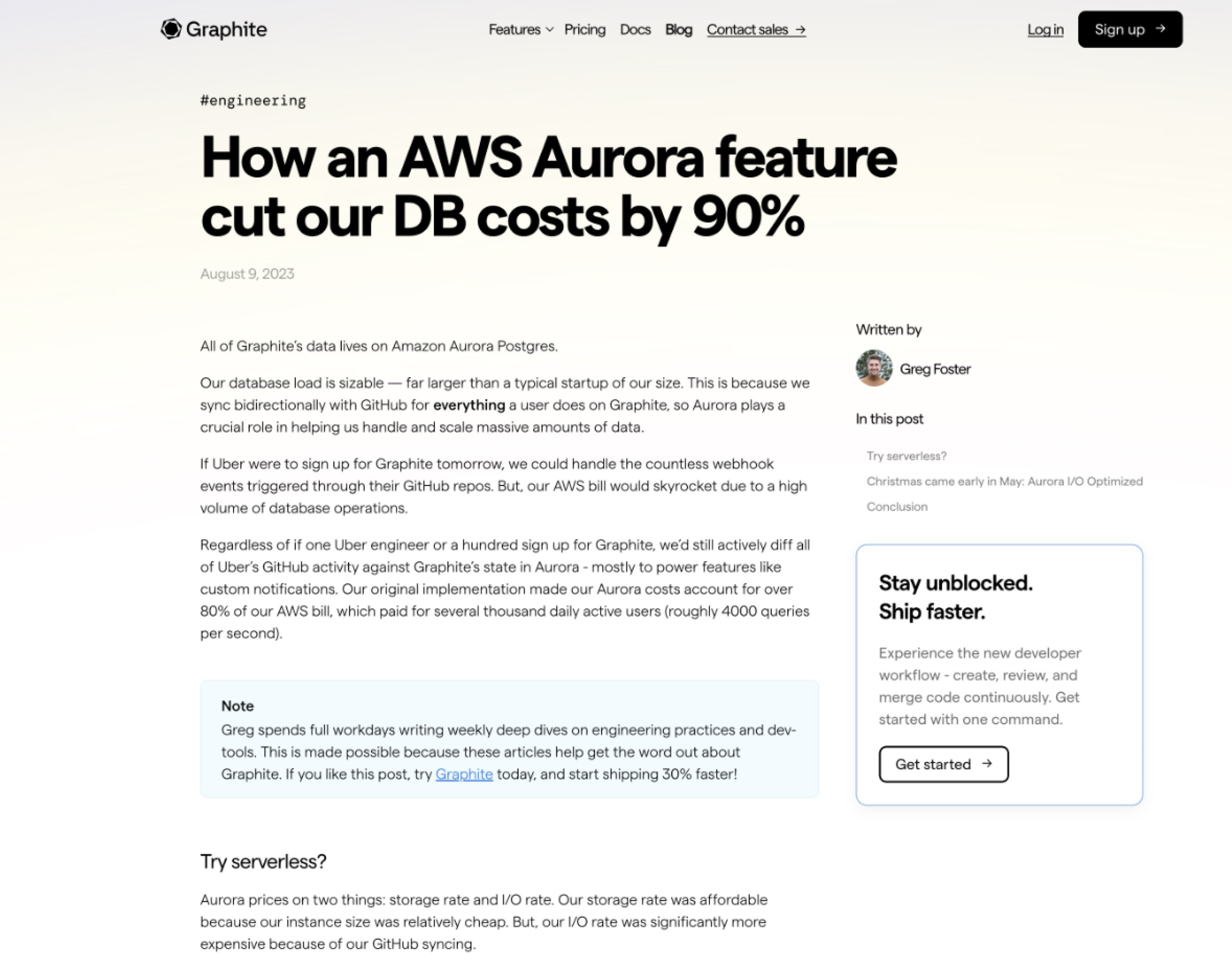AWS
tools to build and manage modern data infrastructures
work experience
aws / jun 2022 to present
collaborators
aws design team
contribution
interaction design, visual design, user research
Role Overview
Simplifying Cloud Infrastructure in the AWS Console
My work at AWS focuses on transforming complex database management into intuitive experiences—resulting in higher adoption of cost-saving features and more efficient workflows for cloud infrastructure.
Role & approach
At AWS, I work with the Databases service team designing interfaces for modern, fully managed cloud database systems. My focus is on making powerful but complex technologies accessible through thoughtful design.
The AWS Console serves as the central interface where customers manage critical infrastructure—creating databases, configuring settings, monitoring performance, and optimizing costs. My challenge is to translate technical capabilities into interfaces that feel natural and predictable, regardless of a user's technical background.
My design process begins by understanding the mental models of both database experts and those new to cloud infrastructure. This foundation helps me create experiences that align with the AWS Well-Architected Framework's pillars: Operational Excellence, Security, Reliability, Performance Efficiency, and Cost Optimization.
While many of my projects involve unreleased features, the following examples demonstrate how I approach the challenge of making complex systems more intuitive.
Project
Making cost optimization intuitive with Aurora I/O-Optimized
My work at AWS focuses on transforming complex database management into intuitive experiences—resulting in higher adoption of cost-saving features and more efficient workflows for cloud infrastructure.
Project brief
The launch of Amazon Aurora I/O-Optimized created an opportunity to deliver significant cost savings for I/O-intensive applications like e-commerce platforms and payment processing systems. The technical complexity behind this feature—involving throughput optimization and latency reduction—presented a key design challenge: how to make this sophisticated capability accessible without overwhelming users.
Technical capabilities only deliver value when customers can easily discover, understand, and implement them. Our design approach transformed a complex pricing model into a clear decision point, enabling more customers to optimize their database expenses.
I approached this by creating a clear decision framework within the console, highlighting the benefits of I/O-Optimized configurations at key moments in the customer journey. This required close collaboration with product managers to understand the technical nuances, and with engineers to ensure the interface accurately represented system capabilities.
The resulting design simplified the selection process while providing context that helped customers make informed decisions. This clarity led to higher adoption rates of I/O-Optimized configurations and delivered meaningful cost savings for customers with high I/O workloads.


Project
Creating consistent patterns for MemoryDB Reserved Instances
My work at AWS focuses on transforming complex database management into intuitive experiences—resulting in higher adoption of cost-saving features and more efficient workflows for cloud infrastructure.
Creating consistent patterns for MemoryDB Reserved Instances
When Reserved nodes in Amazon MemoryDB for Redis launched, customers gained access to potential savings of up to 55% compared to On-Demand pricing. However, the concept of reserved instances involves complex trade-offs between term lengths, payment options, and flexibility considerations.
My challenge was to create an interface that would guide customers through these decisions while maintaining consistency with similar reservation flows across AWS. This required creating a mental model that made these abstract pricing concepts tangible and easy to compare.
Working closely with the product team, I designed a streamlined reservation flow that reduced friction in the purchase process while helping customers understand the implications of their choices. The resulting interface balanced simplicity with the detail necessary for confident decision-making, contributing to increased adoption and substantial customer savings.
Consistency across AWS services creates a sense of familiarity that helps customers navigate complex decisions. Our work on MemoryDB reservations built on established patterns while refining the experience to increase clarity and confidence.
connect
built with/colophon

